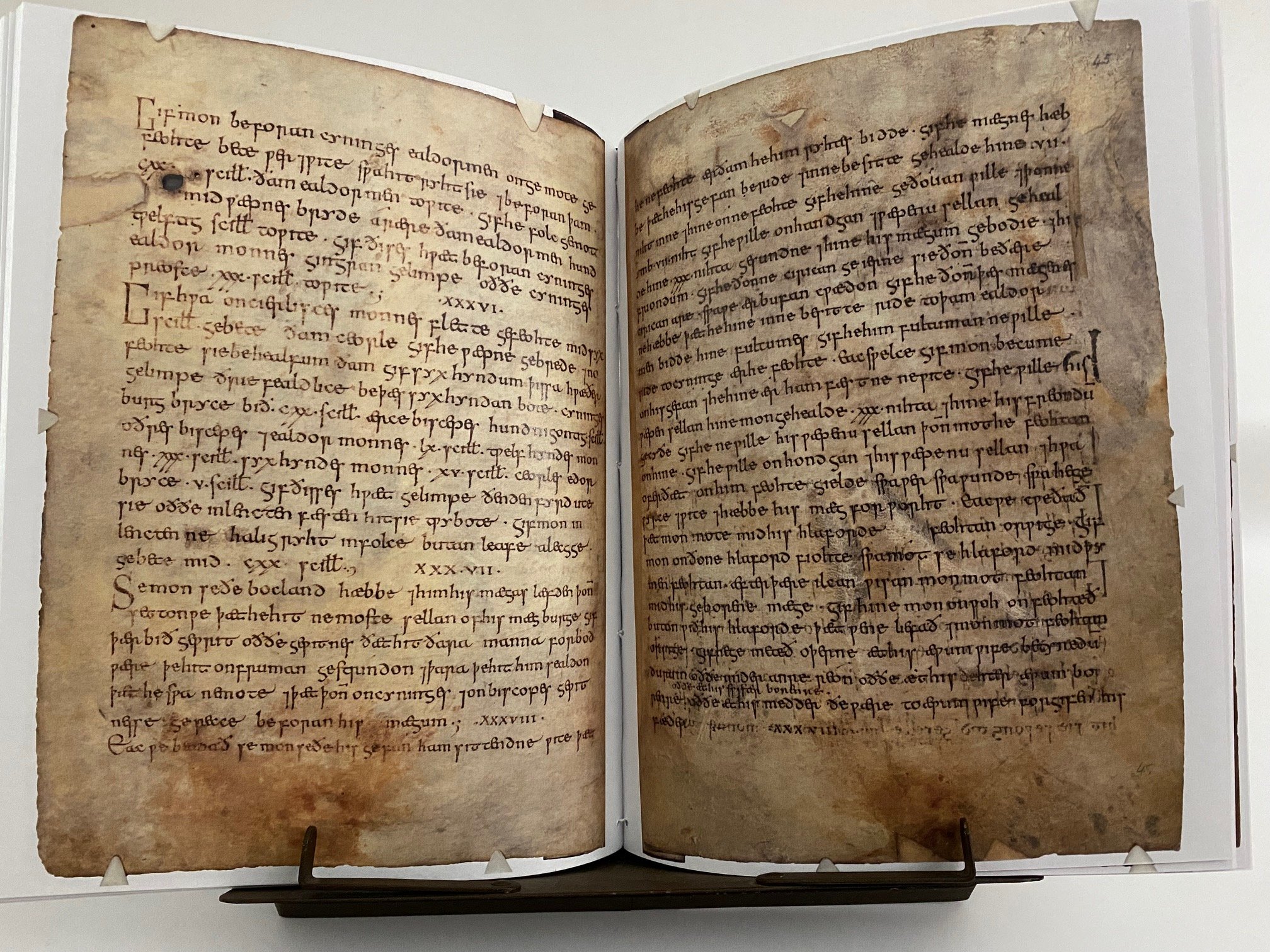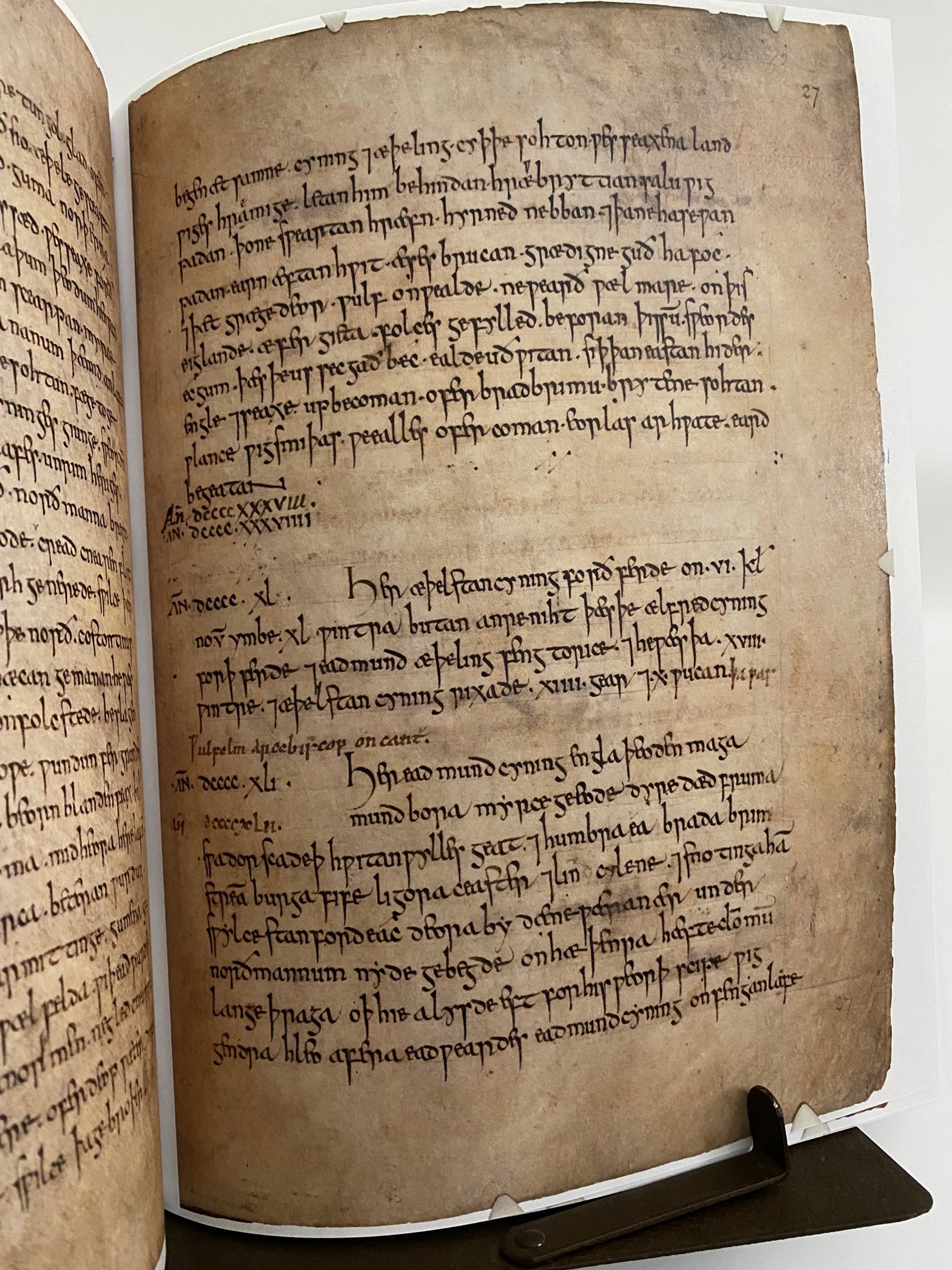Anglo-Saxon Chronicle 700 CE- 1099








Anglo-Saxon Chronicle 700 CE- 1099
Anglo-Saxon Chronicle 700 CE- 1099
English, Old (ca. 450-1100) and Latin
Description:
Contained within CCCC MS 173 resides the Parker Chronicle, a manuscript of paramount significance in the realm of Anglo-Saxon historiography. The manuscript is an integral part of the Anglo-Saxon Chronicle, which stands as the earliest historical record composed in the English language. Its inception can be traced to the educational reforms instigated by King Alfred the Great, and over time, it underwent augmentations in various locations. Notably, the Parker Chronicle, denoted as the A-version, stands as the most ancient extant manuscript within this corpus. Its genesis can be traced back to the late ninth century, with its narrative thread extending into the eleventh century. While its origins are associated with the region of Wessex, particularly Winchester, it eventually found its way to the cathedral priory of Christ Church in Canterbury by the conclusion of the eleventh century.
Beyond its status as the Chronicle's pivotal component, this manuscript houses a treasury of other vital materials. In close proximity to the Chronicle, one encounters invaluable early renditions of the legal edicts promulgated by Alfred the Great, as well as those of his distant predecessor, King Ine of Wessex, whose reign spanned from the late seventh century, circa 726 or thereafter. Additionally, it contains a comprehensive listing of bishops and popes, enhancing its historical significance. Notably, a second volume, bound alongside the Chronicle manuscript in medieval times, contains the works of the late Antique poet Sedulius, most notably his "Carmen paschale," which constitutes a majestic retelling of the Gospels in ornate Latin verse. This component of the manuscript, dating back to the third quarter of the eighth century, assumes a pivotal role in preserving the intellectual heritage of English scholarship prior to the disruptions wrought by Viking incursions in the ninth century. There are indications, notably on folio 57r, that suggest the manuscript's association with Frithestan, the Bishop of Winchester during the years 909-931.
The manuscript bore immense significance to Archbishop Parker and his associates, who took the initiative to update the list of archbishops of Canterbury to include their own names. Furthermore, it played a pivotal role in the publication of the earliest printed book in Old English, known as "Parker's Testimonie of Antiquitie.

